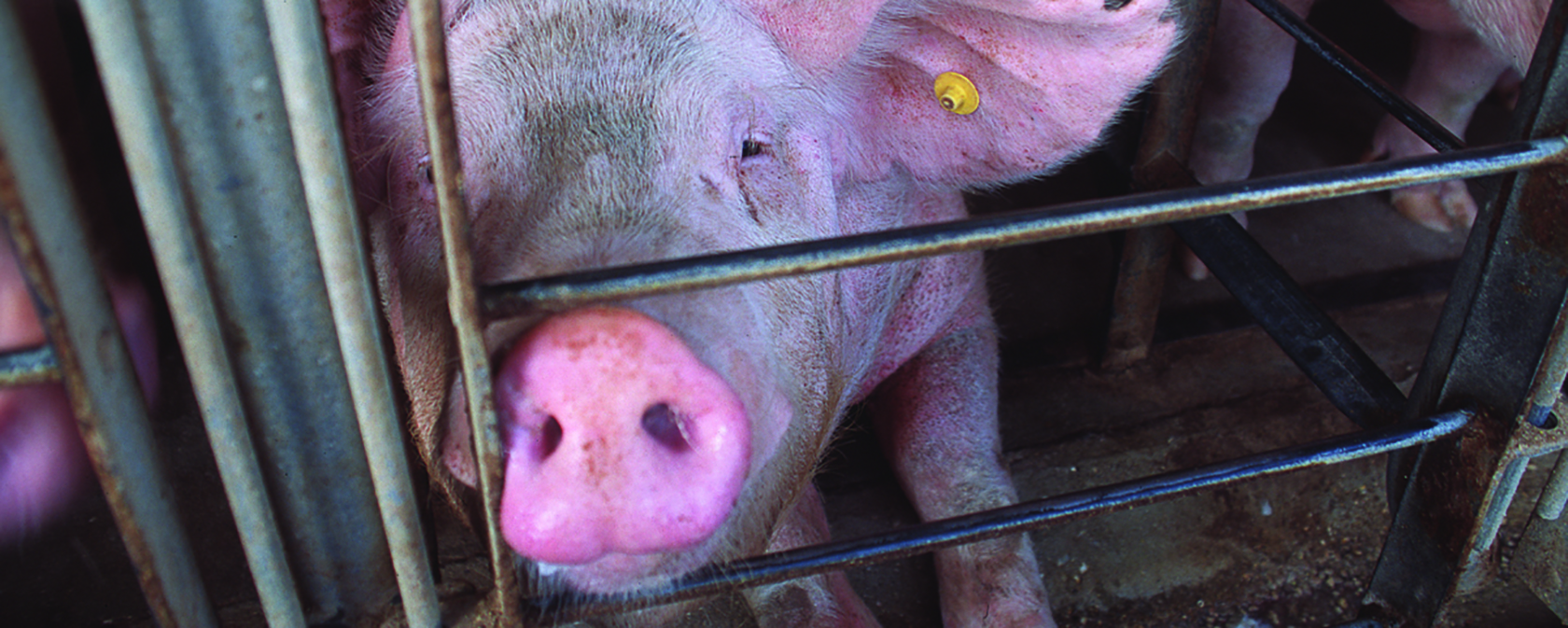By Sara Amundson and Kitty Block
A lawsuit currently being considered by the United States Supreme Court will have enormous consequences for millions of animals across the country—and we have news about major developments, some of it positive and some disappointing. Regardless, the fight continues.
First, some background: The pork industry is suing to overturn California’s Proposition 12, widely considered one of the strongest laws for farm animals in the world. Proposition 12 banned the intensive confinement of egg-laying chickens, mother pigs and calves used in the veal industry. It also prohibited the sale in California of eggs, pork and veal from facilities that use those practices. The landmark animal welfare, consumer protection, and public health law passed in 2018 with 63% of California voters in support, and we are proud to lead such a decisive step forward for farm animal welfare.
But the victory we and the majority of California voters celebrated on behalf of animals in 2018 has had to be vigorously defended ever since. Our legal team and allies have successfully defended Proposition 12 in multiple courtrooms. This current case was filed by the National Pork Producers Council, and the Trump administration submitted a brief in support. Since then, we have been urging the Biden administration to break with the Trump-era position that opposes Proposition 12.
Unfortunately, late last week, the Biden administration submitted a brief that declined to reverse the course set by the Trump administration in 2020. The Biden brief walked back some of the most extreme anti-humane positions advanced by the Trump brief, but nevertheless recommended the Supreme Court remand the case back for additional court hearings on the industry’s claims.
While disappointing, the Biden brief stopped short of openly endorsing the pork industry’s radical legal theories and specifically noted that state laws like Proposition 12 can be constitutional under the right conditions. The California Attorney General and our lawyers will now focus on making clear in our briefing to the Supreme Court that Proposition 12 meets every one of the conditions set forth in the Biden brief.
We are enormously grateful to the 16 U.S. Senators and 100 Representatives, all members of the Democratic Caucus, along with governors and members of state legislatures across the country, who signed letters to the Biden administration. Along with this significant legislative support, there has been a vast coalition supporting Proposition 12—including 98 organizations representing concerns about food safety, animal protection, the environment, sustainable agriculture and farm workers. There clearly was a critical show of political unity for our position. We’re thankful, too, for the concerned citizens who reached out to the White House on this issue.
There was also a positive development in the Supreme Court case that came from an unlikely source: University of California Davis agricultural economics professors. U.C. Davis is one of the most prominent agricultural schools in the country and is frequently hired by agribusiness to conduct industry-focused research. The National Pork Board funded two of the school’s top agricultural economists to analyze the effects of Proposition 12 in 2018. In Friday’s filing, the researchers told the Supreme Court that the industry’s claims of out-of-state economic damage from Proposition 12 are entirely unsupported by their research, and some “lack any plausible basis,” while others defy “common sense” and “simple economic incentives.” In summary, the economists assert that “as a matter of both economic theory and empirical data, [the industry’s] central economic arguments are erroneous and implausible.”
The other briefs filed on Friday night were mostly from the usual suspects aligned with the pork industry. We will respond to the pork industry’s bogus arguments, and a wide group of concerned experts and public interest groups also plan to submit briefs showing that not only does Proposition 12 align with legal precedent, but most importantly that it is in the best interests of animals, consumers, farmers, workers and the planet.
We will continue to keep you posted on how this pivotal case develops.
Kitty Block is President and CEO of the Humane Society of the United States.




